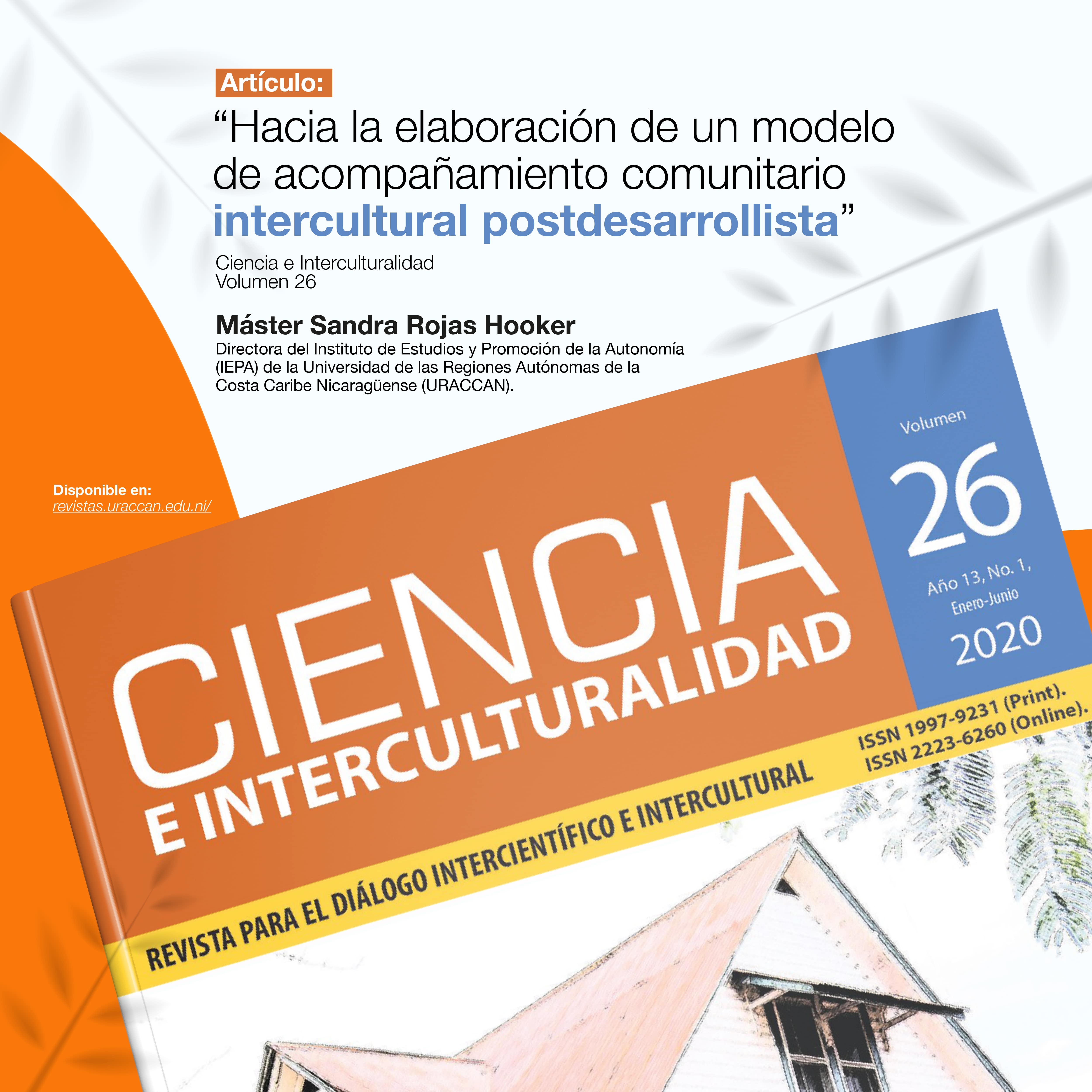
The author recommends the design of a work plan where communities are protagonists of their own transformations and sustainability.
This valuable scientific contribution was published in March 2020.
The research carried out by the master's degree Sandra Carolina Rojas Hooker, director of the Institute of Studies and Promotion of Autonomy (IEPA) of the URACCAN, entitled: "Towards the elaboration of a post-developmental intercultural community accompaniment model", published in the Journal of Science and Interculturality, in volume 26, leads to further strengthening the Model of Intercultural Community Accompaniment that implements this house of studies , as it allows an inter-sectional change from the transformation.
According to the research, to carry out accompanying processes it is necessary first to see the objectives that are required, after prioritizing an included work plan, that is designed with the prominence of communities and that responds to a purpose of change and improvement for the collective, in addition to meeting the current needs without compromising the capacity of future generations.
It should be mentioned that the study identifies fundamental aspects that URACCAN performs in the accompanying process with a view to strengthening the capacities and potentials of communities to achieve the Development with Identity or Good Living of Peoples and Communities in harmony with Mother Nature and in line with the principles of equality and non-discrimination.
In addition, it stresses that community accompaniment should encourage people to ask the question about the meaning of their lives, about what motivates them to live every day and gives them strength and encouragement to overcome the difficulties of the road. Help them discover that inner motivation to activate all the potentials to develop in the accompaniment process. It is to recognize their capabilities to commit to improving their situation and environment and to encourage them to implement them.
Therefore, Rojas Hooker reflects in their research that the accompanying process must be collaborative, participatory, concerted and inclusive, the parties should have the capacity to analyze, contribute, discuss and above all decide the future of the community jointly for the well-being of the same.
The IEPA director also points out that accompaniment promotes the self-management capacity of communities and territories in the Nicaraguan Autonomous Regions of the Caribbean to achieve sustainable human development.
It is important to note that part of the findings of the study is that community accompaniment should be seen as a process consisting of different stages, progressive and continuous, which must revolve around the decisions and steps they take depending on the capacities that are developed. In addition to implementing the elements that make up the accompaniment model.
This scientific contribution was published in March 2020, due to the importance it marks in walking peoples and communities in the pursuit of their integral and sustainable well-being.
- Log in to post comments
- 108 views
